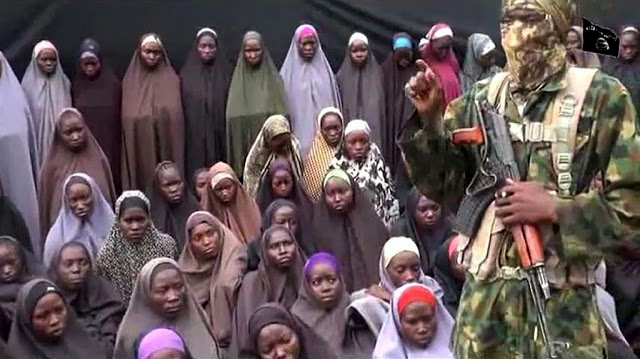
Kano, Nigeria | AFP | Nigeria is facing calls to establish how many of the missing Chibok schoolgirls are still alive, after claims that nearly 100 of them may have lost their lives in captivity.
Parents of the missing girls and supporters gathered in the small town in remote northeast Nigeria on Saturday to mark the fourth anniversary of the kidnapping that sparked world outrage.
But soon after the end of their vigil and prayers, a Nigerian journalist who has been involved in negotiations with the Islamist group said only a “handful” of the girls survive.
Ahmad Salkida wrote in a lengthy thread on Twitter that “only 15” of the 112 girls still being held were alive.
“Many of the girls have died as a result of cross fires and bombardments of the security forces that no doubt were intent on rescuing them,” he added.
The Nigerian government in response neither confirmed nor denied the claim.
President Muhammadu Buhari’s spokesman, Garba Shehu, said only that Salkida’s claim was “not known” to them or anyone working on their behalf.
“The facts as known to our officials and the international contacts assisting this process are that the remaining Chibok girls are there,” he added.
“We are not relenting on getting their release.”
– Grief and alarm –
A total of 276 girls were seized from the Government Girls Secondary School in Chibok on April 14, 2014 and 57 managed to escape in the immediate aftermath.
Since then, 107 have either been found or released as part of a government deal with the jihadists. Claims that some have died or been killed are not new.
In August 2016, Boko Haram released a video purporting to show about 50 of the students.
“Some of them have died as a result of aerial bombardment,” a masked gunman tells the camera. One of the girls then gives details about an air strike by Nigerian armed forces.
Ayuba Alamson Chibok, a community leader in the town whose cousin is among the missing, said parents and relatives were all aware of those claims.
“After the 82 girls were released (in May 2017) I spoke with some of them and they confirmed that some girls were killed in military strike on the camp they were being held,” he told AFP.
“The released girls confirmed to me that 11 of their colleagues died in that air strike and many others were injured.”
There was “no way of knowing” if more had been killed in similar action since then, said Alamson, calling on Boko Haram to release a “proof of life” video for the remaining hostages.
The latest numbers quoted were alarming — and the authorities in Abuja should work towards finding out the situation as soon as possible, he said.
“This claim has added to the grief of parents. The government should act fast. The longer it takes to resolve this issue, the more the future of these girls is destroyed,” he added.
– Human shields –
Nigeria’s military still strictly controls movements in the northeast, where the Islamist insurgency has killed at least 20,000 and made more than 2.6 million homeless since 2009.
That makes access to information difficult but two security sources with close knowledge of operations against Boko Haram said there may be some truth in the claims.
Both declined to give their names, as they were not authorised to speak to the media.
One said it was “indisputable… that some of them perished in air strikes against Boko Haram positions on at least three occasions” between February 2015 and February this year.
The air strikes targeted a Boko Haram base on the Cameroon side of the border with Nigeria; a militant camp on an island on Lake Chad; and the Sambisa Forest area of Nigeria’s Borno state.
“In all these cases Boko Haram used the girls and other hostages as human shields,” the source said.
The second source agreed with Salkida’s claim the remaining girls were now married to senior commanders in the group, which would make negotiations for their return more challenging.
In a video released on January 15, one Chibok girl indicated as much. “We are the Chibok girls that you cry for us to return to you. By the grace of Allah we will not return to you,” she said.
 The Independent Uganda: You get the Truth we Pay the Price
The Independent Uganda: You get the Truth we Pay the Price



